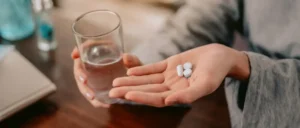We offer medical detox and multiple addiction treatment options in our
luxury treatment centres in Port Hope, Cobourg, and Ottawa.
Navigate Your Recovery from Addiction: A Journey to a Better Future

Navigating recovery from addiction comes with very specific challenges. Maybe a loved one is dealing with an addiction, and you’re seeking a way out, or it’s you who wants to break free of a substance or compulsive behaviour. Learning about the steps you need to take and the obstacles you need to overcome can make recovery from addiction a bit less challenging. With the right tools and support, anyone can recover from addiction and live a more fulfilling life. The Canadian Centre for Addictions (CCFA) explains how to recover from addiction and the stages you must navigate for an addiction-free life.
Key Takeaways
- Addiction recovery is a challenging but rewarding journey that requires time, effort, and perseverance.
- It is usually a lifelong journey that involves changing negative thinking patterns and making positive decisions.
- Relapses and setbacks are normal, so you shouldn’t be too hard on yourself.
- Having a support network of like-minded people can make the journey easier.
- Celebrating successes on the journey is important, no matter how small they may seem.
Recovery from Addiction – What is it?
Recovery from addiction is a process of healing and transformation that involves making changes to your thoughts, behaviours, and lifestyle to help you overcome addiction. Like treatment for chronic diseases, recovery from addiction does not cure addiction but enables you to regain control of your life by reversing the disruptive effects of addiction on your brain.
The recovery from addiction process allows an individual to commit to daily improvements in their life circumstances and physical and mental health until they get to a point where they can live without their substance of choice. Recovery from addiction goes beyond abstinence from substances and addictive behaviours. Recovery is not a linear process, as the chronic nature of addiction means that people in recovery may experience relapse or return to drug use after trying to quit. Recovery from addiction is typically a holistic lifelong process that involves changing one's thinking patterns and making choices that aid positive, healthy, and productive living.
Willpower is often not enough to overcome addiction, and people with addiction require professional help to learn new coping skills, develop healthier relationships, and find new ways of living without drugs or engaging in addictive behaviour. This is because addiction is a disease.
The Canadian Centre for Addictions offers programs for recovery from addiction in an environment that inspires lasting change. We provide sophisticated tools and resources to help individuals and families navigate the recovery path to addiction-free living.
How Long Does it Take to Recover from Addiction?

How long it takes to recover from addiction varies among individuals and depends on many different factors. Addiction rewires the brain to see the substance of choice or addictive activity as necessary, even positive. Addiction creates an upside down and inverted universe where what is really negative and dangerous is seemingly glamourous and positive. Addictionis dishonesty and lies; recovery is about honesty and truth. The length of time needed to reverse the brain’s circuitry to normal depends on multiple factors, including:
- The type of substance abused
- The length and severity of addiction
- The individual’s motivation for recovery
- One’s overall state of health
- Presence of co-occurring mental health disorders
- Use of professional addiction treatment
- Presence of a reliable support network
Considering these factors, some people may achieve sobriety within weeks, while others may take a few months or years. It’s worth noting that recovery goes beyond sobriety. It’s also about taking control and living a more fulfilling life, and this is typically a lifelong journey.
The Stages of Drug and Alcohol Recovery from Addiction
The development of addiction occurs in stages. Typically, addiction begins with experimentation, which becomes regular use, and then high-risk use until dependence is formed. Recovery from addiction also happens in stages. Everyone dealing with addiction will follow a unique path to healing and transformation, but the recovery journey generally involves these five steps.
Pre-contemplation
Pre-contemplation is the first stage of drug and alcohol recovery. In this stage, the person is not yet ready to acknowledge that they have a problem with addiction. They may be in denial about their addiction, or they may just not be prepared for change. People in this stage tend to look at what they consider the negatives of quitting their addiction instead of the benefits. They may resist change and feel overwhelmed by the idea of getting help. For some people in pre-contemplation, an intervention may be required to help them get to the next stage.
Contemplation
The contemplation stage is when the individual begins to open up to the idea that they may have a problem with addiction. They may feel conflicted about making a change but recognize that they need that change. This stage is often marked by ambivalence, meaning the individual feels both motivated and resistant to seeking help. They may evaluate the pros and cons of seeking help without committing. Feelings of guilt, shame, and the potential impact of seeking addiction help may contribute to their hesitancy. Most people will remain in this stage of drug recovery from addiction for up to six months before moving to the next.
Preparation
The preparation stage is when the individual gets ready to make a change. They have started to believe change is possible and are actively taking steps to prepare for it. This stage involves setting goals, planning, and problem-solving. It could start with small steps like avoiding people or places that remind you of your addiction or staying off drugs or alcohol. Preparation may also involve seeking out information about addiction and recovery, finding a support system, and devising plans to overcome cravings.
Action
The action stage is when the individual with addiction starts taking steps to make the changes they need to recover. They have accepted they have a problem and can change their situation if they make the required changes. The individual may have decided to commit to a treatment course or make necessary lifestyle adjustments. The action stage is often the most challenging of the steps to addiction recovery, but it’s also the most rewarding, as it is empowering and offers a sense of accomplishment.
Maintenance
The maintenance stage is the final stage of recovery when someone has made significant changes in their lives and is working to maintain those changes over time. This stage is about learning to cope with triggers and cravings, building a support system, and creating a healthy lifestyle that doesn’t involve drugs or alcohol. Relapse is always possible during this stage, but it's possible to get back on track and maintain the course with the proper support and tools.
The Common Challenges of the Addiction Recovery Process
Developing Coping Strategies
Developing new coping strategies is an integral part of addiction recovery, but it can also be a challenge. Old habits are often deeply ingrained, and replacing them with new, healthy behaviours can be difficult. It takes time, patience, and practice to develop new habits and strategies for dealing with cravings and triggers. This process can be incredibly challenging in the early stages of addiction recovery when cravings are strongest.
Confronting Deep-Seated Issues Without Substances
Confronting issues without drugs or alcohol can be a real challenge for people in recovery. This problem is because substances are often used as a crutch for deep-seated problems like trauma, shame, sadness, guilt, and other negative emotions.
For instance, a person might drink to numb the pain of a breakup or use drugs to avoid dealing with problems at work. They may also be used to self-medicate by people dealing with mental health conditions like depression or anxiety. Confronting these challenges head-on can be difficult and often demands effort and bravery. In recovery, you will learn healthier ways to cope with unpleasant feelings and negative emotions.
Boredom

Individuals in recovery follow a structured routine and may have a lot of free time after their daily schedule. Having so much free time can threaten your sobriety since you can no longer fill it up with drugs or alcohol. For a person who has been using substances for a long time, it can be hard to find ways to fill the day and feel engaged and fulfilled. This void can lead to feelings of loneliness, frustration, and depression. It’s essential to find meaningful ways of spending free time, like engaging in hobbies, learning new skills, or connecting with people.
Repairing Broken Relationships and Building New Ones
Substance use damages relationships with friends, family, and romantic partners. This is because of an addict’s tendency to be self-centred on getting and using their substance of choice. Sometimes, it can also be challenging to make new friends while in recovery, as many social activities revolve around alcohol or drugs. But it’s necessary to make an effort towards mending damaged relationships and developing new ones that support a sober lifestyle.
Relapse
Relapse is a common and often frustrating part of the addiction recovery process. You should not look at relapse as a sign of failure if it happens. Instead, you should see it as a normal part of the journey and an opportunity to learn and grow. Addiction is a brain disease, and it takes time for the brain to stop craving the substance of choice. The key to preventing relapse is to have a plan in place for dealing with triggers and cravings and to reach out for support when needed.
Transitioning Into Normal Society
Getting back into normal society after spending time in a treatment centre can be challenging for people in recovery. You may face challenges with employment, reconnecting with friends, and finding a sense of direction. Without proper guidance, people facing these difficulties may get frustrated and be tempted to return to using their substance of choiceAt this point, taking things slowly and focusing on taking care of yourself physically and mentally is essential.
Finding Purpose
When a person is using drugs or alcohol, it may feel like their life revolves around their substance of choice. It can be tough to find a sense of purpose when they don’t have to use drugs anymore. Holistic addiction treatment also involves helping recovering addicts find purpose and fulfillment without drugs. Some people may find this through spirituality, pursuing new interests, or helping others recover.
Addiction Recovery Treatment Programs
Addiction recovery treatment programs offer a variety of treatment services to help people overcome addiction and rebuild their lives. The goal of these programs is to help people with addiction with the skills and support they need to live sober, fulfilling lives. Addiction affects individuals differently, so there’s no one-size-fits-all treatment. The ideal addiction treatment is one tailored to the individual’s specific needs. Recovery from addiction will include one or a combination of the following:
Medical Detoxification
Medical detox is typically the first step in addiction treatment. It helps to get all traces of the substance of addiction out of the individual’s system. Withdrawal symptoms are unpleasant and potentially dangerous, so detox is necessary to help patients go through withdrawal safely. Detox may involve the use of medications to ease withdrawal symptoms and cravings.
Rehabilitation Programs

Rehabilitation programs provide structured support and treatment in a residential setting. They typically last several weeks to months and may include individual or group therapy, meditation, faith-based treatment, 12-step programs, and life-skill training.
Rehab programs for addiction could be performed on an inpatient or outpatient basis. Inpatient rehab requires people to live at the treatment facility for the duration of the program. Patients receive treatment in a highly structured environment that allows them to focus solely on their recovery.
Outpatient rehab allows people to live at home and attend treatment during the day or evenings. It is a good option for people who have work or other responsibilities. Outpatient treatment is also less expensive and offers more flexibility than inpatient rehab.
Counselling and Behavioural Therapies
Counselling and behavioural therapies for addiction allow people to identify and address the underlying issues that may have contributed to their addiction. They also help people to develop healthier coping skills and new ways of thinking about substance abuse recovery. The most common types of counselling and therapy used in addiction treatment include cognitive behavioural therapy (CBT), dialectical behaviour therapy (DBT), and motivational interviewing (MI). Although each of these modalities uses different psychological techniques, all mental health treatments have, as their goal and desired outcome, for the individual to find ways to cope better with stress, find peace of mind, and see hope and promise for a better future, one day at a time.
Support Groups
Support groups provide a safe, non-judgmental space for people to share their experiences and support each other in recovery. These groups often use the well-known 12-step approach, which involves admitting powerlessness over addiction, making amends, and helping others. Support groups can be valuable to long-term recovery, offering a sense of community and accountability. Examples of support groups include Alcoholics Anonymous, Narcotics Anonymous, SMART Recovery, and Al-Anon.
When to Consult a Professional
You should consult a professional if you notice the following with substance use or any habit-forming activity.
- Using the substance in greater doses than prescribed
- Trying and failing to stop using the substance or engaging in the activity
- Having intense cravings to use the substance or engage in the activity
- Spending a great deal of time getting, using, and recovering from the effects of the drug
- Decreased productivity at work or school due to substance use or habit-forming behaviour
- Continued use of the drug or engaging in the behaviour despite adverse consequences on one’s health, finances, or relationships
- Needing increased amounts of the drug to get the same effects – tolerance
- Becoming substance-dependent – unable to go about your daily activities without using the substance
- Experiencing withdrawal symptoms if you cannot access the substance of choice
Tips on Navigating Your Addiction Recovery Journey with Ease
Addiction recovery is tough, and you may not get it right at once. However, the following tips can help make the recovery steps less challenging.
Be Patient and Compassionate with Yourself
The path to recovery is not always linear, and you may experience bumps and setbacks. It’s important to be kind and patient to yourself during this process. Give yourself credit for every milestone you achieve and try not to compare your journey with someone else’s.
Create a Recovery-Friendly Environment
Creating a recovery-friendly environment is crucial in avoiding triggers and preventing relapse. It may mean removing substances from your home, avoiding people and places that may bring memories of using, and finding healthy activities to fill your time.
Surround Yourself with a Network of Like-Minded People
Having a solid support network of like-minded people in recovery or those who have overcome addiction can make the journey easier. These people can provide encouragement, hold you accountable, and offer understanding when you’re struggling.
Be Honest to Yourself and Others in Your Support Network
Be honest about your addiction struggles and the problems it’s causing in your life. You also need to be truthful to members of your circle and ask them for help when needed.
Stick to the Rules of Your Recovery
It’s important to stick to your recovery plan and not bend the rules or attempt to negotiate your recovery. Following your care routine makes the journey easier, giving you a sense of structure and stability. It also allows you to focus on your goals, keeps you motivated, and fills you with a sense of accomplishment.
Practice Self-Care
Self-care is often overlooked in the recovery process, but it’s a crucial part of staying sober. It means looking after your physical, emotional, and mental well-being by eating right, exercising regularly, and getting enough sleep. Self-care reduces stress, prevents burnout, and makes you less likely to relapse.
Conclusion
Navigating your recovery in addiction is challenging but highly rewarding. It takes time, effort, and perseverance to see it through. However, with the right combination of resources, support, and self-care, anyone can overcome addiction.
The Canadian Centre for Addictions offers quality addiction treatment in Ontario. We help our clients understand their addictions and the healthier coping strategies available by engaging them in one-on-one counselling with certified counsellors, psychiatrists, and mental health professionals. Call 1-855-499-9446 to commence your journey to a substance-free, purposeful life.
FAQ
What are the five recovery skills?
The five recovery skills are independent living, self-care, mindfulness, emotional regulation, and setting boundaries. These skills aid and make your addiction recovery journey easier.
What is recovery behaviour?
Recovery behaviour refers to the actions you take to maintain and support your sobriety. These include attending support groups, engaging in healthy activities, and avoiding places and people that trigger your addictive behaviour.
What are the SMART goals in recovery?
SMART goals in recovery are a helpful tool for setting achievable sobriety goals. It is an acronym for Specific, Measurable, Achievable, Relevant, and Time-bound. For example, a SMART goal might be "I will attend at least two weekly support group meetings for the next four weeks.
Is solo addiction recovery safe?
Solo addiction recovery can be dangerous, as some withdrawal symptoms can be unpleasant and life-threatening. It can also be isolating as there's no support and accountability system, making it difficult to stay motivated. Having a support system makes the recovery journey safer and more effective.
What are the stages of recovery from alcoholism?
The stages of recovery from alcohol addiction can be broken down into five steps: pre-contemplation, contemplation, preparation, action, and maintenance.





